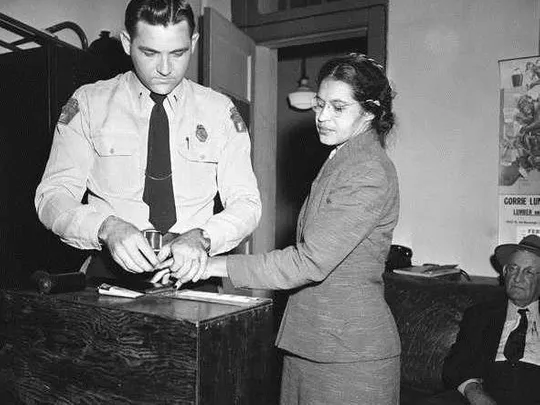Outside the Government: The Metaphysical Engine, or What Quill Did
 It’s November 26th, 2016. Clean Bandit are at number one with “Rockabye,” with James Arthur, Bruno Mars, and Neiked also charting. Indeed, the overall top ten are the same as last week in a very slightly different order. In news, the government of Colombia reaches a peace agreement to end the fifty-year long fight against FARC revolutionaries. 300 people are injured when police attack a protest against the Dakota Access Pipeline on the Standing Rock reservation. And Philip Hammond makes his Autumn Statement to Parliament.
It’s November 26th, 2016. Clean Bandit are at number one with “Rockabye,” with James Arthur, Bruno Mars, and Neiked also charting. Indeed, the overall top ten are the same as last week in a very slightly different order. In news, the government of Colombia reaches a peace agreement to end the fifty-year long fight against FARC revolutionaries. 300 people are injured when police attack a protest against the Dakota Access Pipeline on the Standing Rock reservation. And Philip Hammond makes his Autumn Statement to Parliament.
On television, meanwhile, Class tries something different. “The Metaphysical Engine, or What Quill Did” focuses almost entirely on Quill, telling the story of her efforts to get the MacGuffin removed from her head so she is no longer enslaved to Charlie. This is already unusual, in that it gives us a YA show that has temporarily dropped all of its YA characters to focus on… well, exactly who and what Quill is as a character will come up later, so let’s save it and move on. Adding to the strangeness is the eponymous concept—a device that allows people to travel into the afterlifes and higher planes of any species that has imagined one. This means that the episode takes an unusual picaresque structure that is unlike anything else in Class.
What’s going on with the Metaphysical Engine itself should be obvious, especially if you look to any of the shots of its interior in which it the camera stares down at its hexagonal metal floor. It’s the TARDIS. Which means “The Metaphysical Engine, or What Quill Did” can basically be summarized as “Class does Doctor Who.” So immediately there’s a lot to unpack.
There’s a line of thought regarding Class—one pushed most notably over at the excellent blog Downtime—that reads it as a critique of Doctor Who. Actually, I suppose it’s pushed most notably by Patrick Ness, who has explicitly said that the show is about ordinary people when the Doctor isn’t there. In this reading, the show is about the bad consequences of the Doctor’s decision in “For Tonight We Might Die”—a critique of his tendency to swan off into the next adventure instead of staying and grappling with the consequences of his actions. This is of course a common critique of the character, typically within the show itself. But as a central thesis of Class there’s something less satisfying. Part of it is that, contrary to Ness’s protestations, Class is not about ordinary people but rather about television characters. As a result, the show never quite manages to be about what happens to ordinary people in the Doctor’s absence, instead ending up just being about what happens to characters from another TV show.
More complexly, Class’s protestations on this front end up sounding uncomfortably like that Edgar Allen Poe quote dragging bad mystery writers as trying to look clever for figuring out solutions to problems they invented. The show endeavors to construct a Doctor-shaped hole at the heart of its narrative and then to present this hole as a substantive subject of critique as opposed to as something that’s been deliberately excavated.…


 chorus does little to liven up the song, with its tepid use of beer bottles as an instrument only succeeding in making the track sound flaccid. The worst comes at the end of the chorus, with Bush chiming “mama woman aha!” obnoxiously. This culminates in the song’s outro, with Bush imitating… what is she doing here exactly? Percussionist Morris Pert’s boo-bams (a kind of bongos) bring a light world music flavor to it, amplified by Bush’s grating “OO-AH”s. It’s one of the most tasteless moments on an otherwise sophisticated record, and releasing a track like this instead of
chorus does little to liven up the song, with its tepid use of beer bottles as an instrument only succeeding in making the track sound flaccid. The worst comes at the end of the chorus, with Bush chiming “mama woman aha!” obnoxiously. This culminates in the song’s outro, with Bush imitating… what is she doing here exactly? Percussionist Morris Pert’s boo-bams (a kind of bongos) bring a light world music flavor to it, amplified by Bush’s grating “OO-AH”s. It’s one of the most tasteless moments on an otherwise sophisticated record, and releasing a track like this instead of  opportunity to repost it. With the Oscars coming up and likely to reward this piece of trash for being the toxic garbage it is, I figured pushing my take into the limelight would be a good move. Given that I’m compeltely satisfied with the essay (something you’ll never hear me say about my work), I’ve chosen to not edit it at all and am presenting the piece as it initially appeared. With that in mind, here is me getting extremely pissed off at Bohemian Rhapsody. While we’re here,
opportunity to repost it. With the Oscars coming up and likely to reward this piece of trash for being the toxic garbage it is, I figured pushing my take into the limelight would be a good move. Given that I’m compeltely satisfied with the essay (something you’ll never hear me say about my work), I’ve chosen to not edit it at all and am presenting the piece as it initially appeared. With that in mind, here is me getting extremely pissed off at Bohemian Rhapsody. While we’re here,  This week, Daniel gives me an introduction to the strange world of the Southern Nationalists.
This week, Daniel gives me an introduction to the strange world of the Southern Nationalists. It’s November 19th, 2016. Clean Bandit has debuted at number one with “Rockabye,” while Rae Sremmurd, Bruno Mars, James Arthur, and the Weeknd also chart. In news, the British Medical Journal calls for the legalization of drugs while Donald Trump agrees to pay $25m in settlements over Trump University.
It’s November 19th, 2016. Clean Bandit has debuted at number one with “Rockabye,” while Rae Sremmurd, Bruno Mars, James Arthur, and the Weeknd also chart. In news, the British Medical Journal calls for the legalization of drugs while Donald Trump agrees to pay $25m in settlements over Trump University.
 pluck from American music to make it big, Genesis came from a school of art that looked to its homeland for its stories. There’s a pastoral quality to much of their music that’s more at home in a tradition with As You Like It than The Great Gatsby. English land and politics come into Gabriel-era Genesis songs quite often, and Bush’s nurturing relationship with British mythos bears similarities to this approach (which will come to a crescendo in “O England My Lionheart”).…
pluck from American music to make it big, Genesis came from a school of art that looked to its homeland for its stories. There’s a pastoral quality to much of their music that’s more at home in a tradition with As You Like It than The Great Gatsby. English land and politics come into Gabriel-era Genesis songs quite often, and Bush’s nurturing relationship with British mythos bears similarities to this approach (which will come to a crescendo in “O England My Lionheart”).… It’s November 5
It’s November 5
